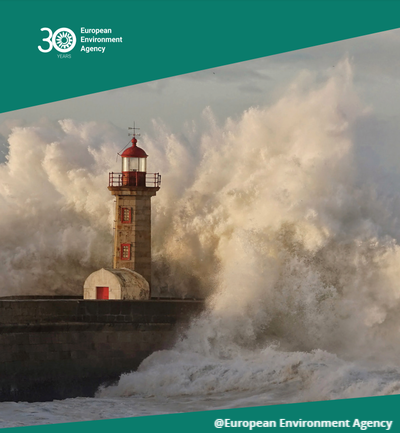
On 11 March 2024, the European Environmental Agency (EEA) released its first-ever European Climate Risk Assessment (EUCRA). Building on previous reports by the IPCC, the EU’s Copernicus Climate Change Service, and the European Commission’s Joint Research Centre (JRC), as well as national assessments and EU-funded projects, it aims to support policymaking by enhancing the existing knowledge base on the impact and risks associated with climate change. The day after, on 12 March, the European Commission also unveiled its Communication on managing climate risks in Europe: a call to action that aligns with the EEA's, detailing how to prevent risks and build greater climate resilience.
According to the EEA’s publication, which underscores that Europe is warming twice as fast as the rest of the world, extreme weather events such as severe heat waves, droughts, wildfires, and floods have already reached critical levels, negatively impacting living conditions on the continent. In this context, the EUCRA has identified 36 prominent climate risks within five categories: ecosystems, food, infrastructure, economy and finance, and health.
The report highlights that marine and coastal ecosystems are in danger, while droughts threaten food and water security. It also points out that heat poses serious risks to human health. Climate change tends to dangerously impact energy production, transmission, and demand. Lastly, these risks impact the economy, as they notably lead to more government spending and can increase the price of insurances.
In response, the assessment finds that the EU’s action has not kept pace with increasing risks, pointing out that incremental changes will not be sufficient given the urgency of the current situation, particularly in southern Europe, which faces more impact from heat and water scarcity. The EEA advocates for more societal preparedness, closer cooperation at the local, regional, national, and European levels, and further exploration to fill lingering knowledge gaps, as well as how to address risks through regulation and effective implementation.
The European Commission’s Communication similarly underscores the importance of swift action, notably to avoid massive costs caused by climate inaction, as damages caused by extreme weather events could lower EU GDP by up to 7% by 2100. It identifies four main parameters to act on and improve in order to reduce climate risks.
Echoing the EEA report, it first advises improving governance through closer cooperation between the EU and member states, better identification of risks, planning, and implementation of solutions. Secondly, it proposes developing better monitoring, forecasting, and warning tools to empower policymakers, businesses, and investors. The European Commission also recommends acting on structural policies, citing examples such as spatial planning and infrastructure, and investing in risk management, response capacities, and expertise. Lastly, it calls for mainstreaming climate-risk budgeting, integrating climate adaptation into implementing EU programmes and public procurement tenders and establishing a temporary Reflection Group on mobilising Climate Resilience Financing.